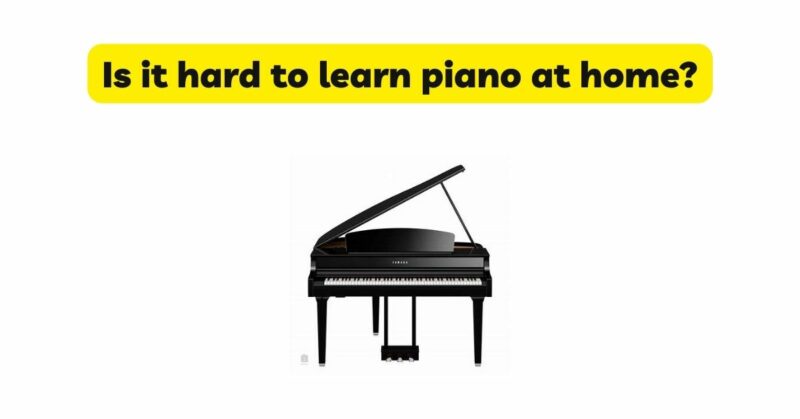Learning to play the piano is a dream for many music enthusiasts. The piano’s timeless appeal and its ability to create beautiful melodies have captivated generations. In today’s digital age, learning an instrument from the comfort of one’s home has become increasingly popular and accessible. However, a common question that arises is whether it is hard to learn piano at home. This article aims to explore the challenges and advantages of learning the piano in a home setting, offering insights and guidance for those embarking on this musical journey.
- Self-Motivation and Discipline: One of the primary challenges of learning the piano at home is the need for self-motivation and discipline. Unlike traditional lessons where a teacher provides structure and accountability, learning at home requires individuals to create their own practice routine and stick to it. It can be tempting to procrastinate or become lax in practicing, making it essential to cultivate self-discipline and stay motivated throughout the learning process.
- Access to Learning Resources: Advancements in technology have made it easier than ever to access a vast array of learning resources for piano enthusiasts. Online tutorials, instructional videos, virtual piano apps, and interactive platforms offer a wealth of information and guidance. However, the abundance of resources can also be overwhelming, requiring learners to sift through various options to find high-quality materials suitable for their skill level and learning style.
- Establishing a Structured Learning Approach: Creating a structured learning approach is crucial when learning the piano at home. Without a teacher’s guidance, individuals must identify appropriate learning materials, establish a progressive curriculum, and set achievable goals. Breaking down the learning process into smaller, manageable steps and organizing practice sessions effectively can help learners stay focused and make steady progress.
- Technique and Posture: Developing proper technique and posture is essential for efficient and injury-free piano playing. While it is possible to learn the basics of technique through online resources, without a teacher’s guidance, learners may struggle to identify and correct potential errors or bad habits. It is crucial to pay close attention to hand positioning, finger placement, and overall body posture to ensure long-term progress and prevent musculoskeletal issues.
- Accountability and Feedback: One of the benefits of learning with a teacher is the immediate feedback and correction they provide during lessons. Learning at home may lack this crucial element, which can make it challenging to identify and rectify mistakes. Self-assessment, audio or video recordings of practice sessions, or seeking feedback from fellow musicians online can help fill this gap and provide a form of accountability.
- Developing Music Theory Knowledge: A solid foundation in music theory is vital for a comprehensive understanding of piano playing. While it is possible to learn basic theory concepts through online resources, self-study can sometimes be daunting and difficult to grasp without guidance. Engaging with music theory books, online courses, or seeking the assistance of a knowledgeable tutor can enhance the learning experience and provide clarity in understanding musical concepts.
- Overcoming Frustration and Plateaus: Learning any new skill comes with moments of frustration and plateaus, and learning the piano is no exception. At times, progress may feel slow or stagnant, which can be disheartening. Patience and perseverance are key to overcoming these challenges. Seeking inspiration from accomplished pianists, listening to music, exploring different genres, and taking breaks when needed can help rekindle motivation and push through difficult periods.
- The Benefits of Learning at Home: Despite the challenges, learning the piano at home offers unique advantages. The flexibility of scheduling practice sessions to fit personal routines, learning at one’s own pace, and having the freedom to explore various genres and styles are all significant benefits. Moreover, learning in a comfortable and familiar environment can alleviate performance anxiety and allow for a more relaxed and enjoyable experience.
Conclusion: While learning the piano at home presents its own set of challenges, it is by no means an insurmountable task. With dedication, discipline, and a structured approach, individuals can make significant progress and fulfill their musical aspirations. Leveraging online resources, seeking feedback, and cultivating a love for the instrument are key elements to overcome difficulties encountered during self-study. Learning the piano at home offers a rewarding and fulfilling experience, providing ample opportunities for personal growth, artistic expression, and a lifelong love for music.


